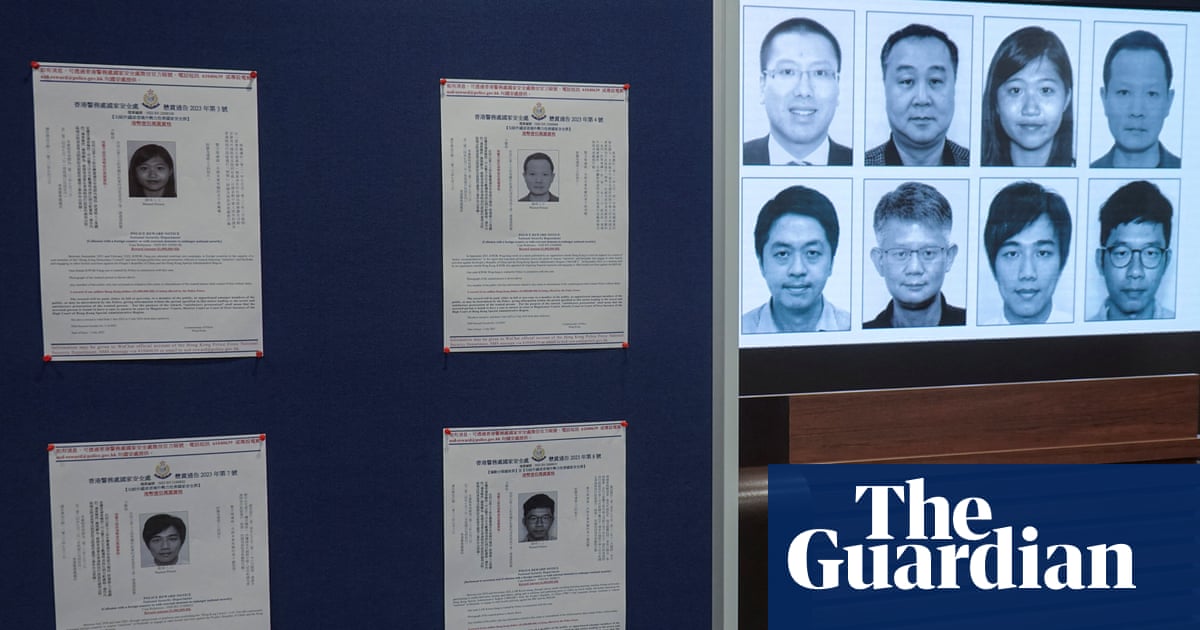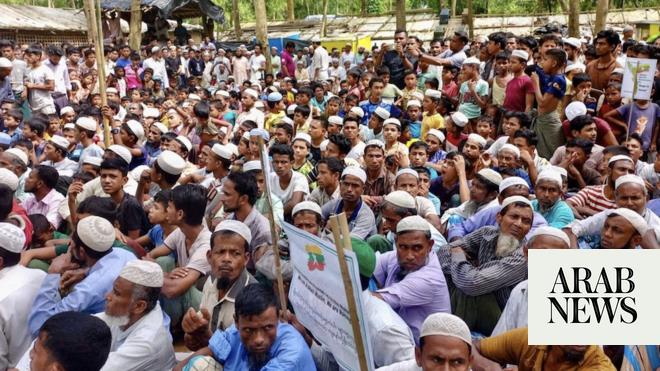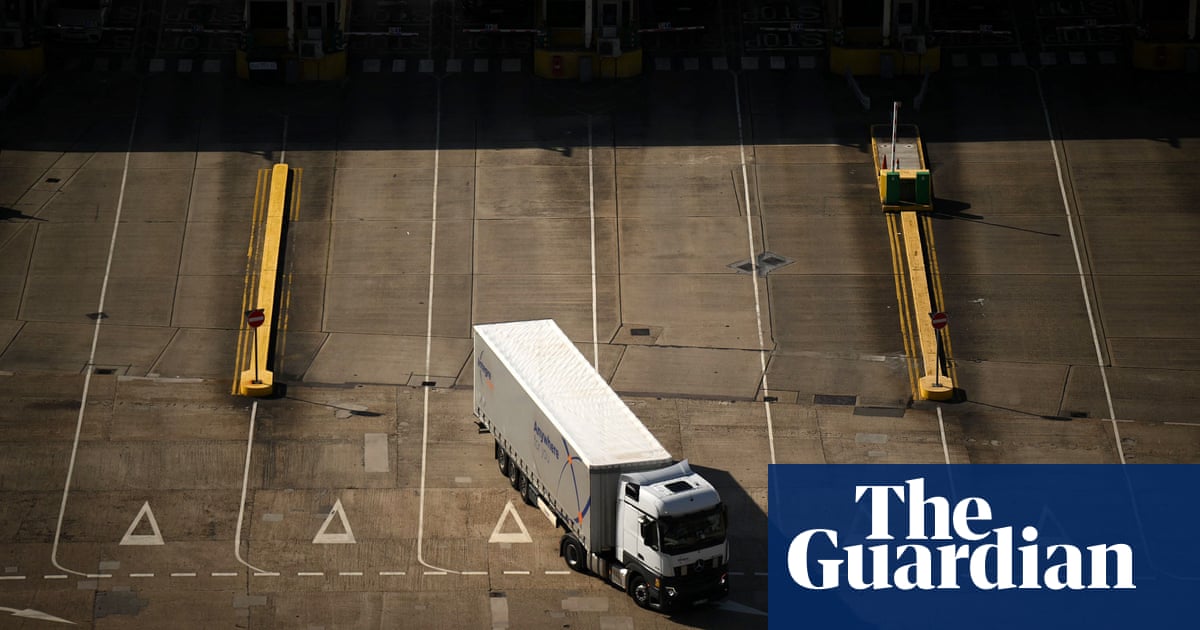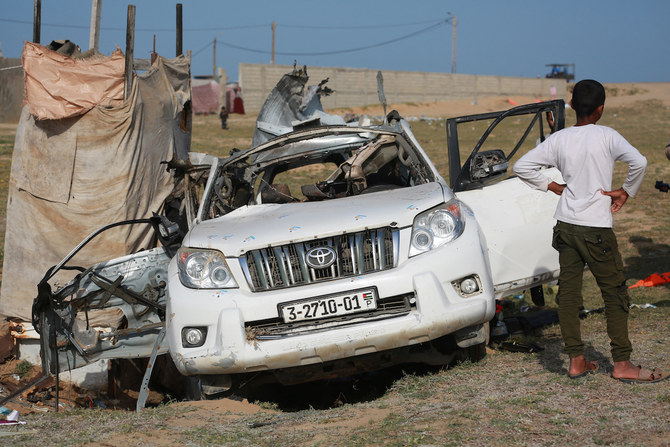
Monsoon season increases urgency for more aid to Bangladeshi refugee camps.
‘Governments shake their heads and say never again. That isn’t good enough,’ says lawmaker.
London: British MPs have called for further arms sanctions to be imposed on Myanmar in an effort to tackle the persecution of the minority Rohingya people in the country.
There are around 800,000 Rohingya now living in camps in Bangladesh after fleeing Rakhine state to escape a wave of violence instigated by Myanmar’s military since mid-2017.
The UN said last month that the treatment of the Muslim minority group has amounted to “ethnic cleansing,” as security forces continue to kill Rohingya, burn down their villages and abduct and rape women and girls to drive them out of the country.
Helen Jones, Labour MP for Warrington North, said on Monday it was time that the UK and international community do more to bring an end to the violence and bring the perpetrators to an international court.
“We seem to be reluctant to collect evidence of what has happened,” she said during a select committee debate on April 16 discussing petitions signed by members of the UK public calling for more action, including sanctions, on Myanmar.
The UK had sent some advisers to Bangladesh to help collate information on what happened to the Rohingya, she said.
“Where is the rest of the world? It is true that time after time, governments shake their heads and say never again. That isn’t good enough. We said it after Bosnia, we said it after Rwanda. We keep saying it.
“It is not good enough to ask the Burmese to investigate themselves, they have already cleared the army of any crimes,” she said.
Jones said that it was “very urgent” for more pressure to be placed on Myanmar to accept an independent investigation into what has happened, citing reports that Myanmar security forces were already bulldozing villages and destroying potential evidence.
“I hope that the UK government will say clearly that it is right that the UN refers Burma (Myanmar) to the International Criminal Court (ICC),” she said.
Financial sanctions against Myanmar would also help ramp up the pressure on Myanmar to allow an investigation, she said.
While the EU has already imposed an arms embargo, Jones said there is a need for a “world embargo on selling arms to Burma.”
The UK has already pledged £47 million ($63 million) at an international aid conference held in Geneva last October. A total of $300 million was pledged by countries including Sweden, Denmark, Australia and the UAE.
“What we must do now is work to ensure that other countries step up too,” Jones said, calling on wealthier countries to provide more aid to “avert a tragedy” in Bangladesh as monsoon season starts to threaten the already overcrowded camps.
The rains will likely flood the camps and sewage systems bringing disease and more deaths, Jones said.
Conservative MP and trade envoy to Myanmar, Paul Scully, said he also backed the use of “targeted” sanctions against companies related to the military.
“We need to target our sanctions really carefully … at military-owned organizations,” he said.
“I wouldn’t want to see an overall sanction regime waged against Burma,” he said, adding that such action could risk impoverishing other people.
Currently Bangladesh does not categorize the Rohingya as “refugees,” meaning they are unable to leave the camps and seek refuge in other areas of the country.
Bangladesh is currently constructing new camps that Jones likened to “prison camps,” and is keen to repatriate the Rohingya to Myanmar, it was claimed.
“It is very clear that the aim of the Bangladeshi government is to ensure that the Rohingya are repatriated, and that may be a very laudable ambition in the long-term, but they can not return while violence continues in Rakhine, and while they are not recognized as citizens of their own country, and there is no humanitarian access to monitor their return,” Jones said.
In response to MPs’ calls for sanctions, Mark Field, minister of state for the Foreign and Commonwealth Office, said that the UK government has so far “not advocated sanctions” against any sector or entity in Myanmar. He said that it was “difficult to predict or control the effect of financial sanctions.”
“There is a concern that targeting companies and sectors has the danger to lead to greater isolation of the Burmese economy which will strengthen (the) relative power of military,” he said, as well as the power of Myanmar’s neighbor China.
He added that the UK is preparing to launch pilot projects this year that will help support Myanmar’s transition to democracy and strengthen laws designed to protect Rohingya and other minorities.












